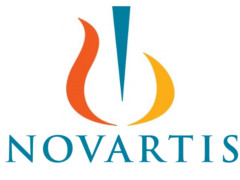 On September 6, a Division Branch of the Supreme Court of India was going to hear Novartis’ challenge to the Appellate Decision that prevented it from patenting imatinib messylate, but Judge Dalveer Bhandari recused himself and sent the matter to another branch. Novartis’ patent application was rejected because the drug was found to be a new form a known substance that did not show increased efficacy over old forms. Section 3(d) of the Patents Act requires new forms of known substances to show greater efficacy in order to be Patentable. Novartis is arguing that the definition of “efficacy” should be broad enough to include increases in bioavailability, while the Madras High Court that rejected its patent application defined it as “therapeutic effect in healing a disease.”
On September 6, a Division Branch of the Supreme Court of India was going to hear Novartis’ challenge to the Appellate Decision that prevented it from patenting imatinib messylate, but Judge Dalveer Bhandari recused himself and sent the matter to another branch. Novartis’ patent application was rejected because the drug was found to be a new form a known substance that did not show increased efficacy over old forms. Section 3(d) of the Patents Act requires new forms of known substances to show greater efficacy in order to be Patentable. Novartis is arguing that the definition of “efficacy” should be broad enough to include increases in bioavailability, while the Madras High Court that rejected its patent application defined it as “therapeutic effect in healing a disease.”
Health advocates are concerned that a ruling in favor of Novartis would block many other generics currently manufactured in India for both domestic use and export to developing countries that rely on Indian generics. Leena Menghaney of Médecins Sans Frontières told the Associated press that “There will be nothing left to defend if we lose – the generic industry is just going to pack up and leave.”
Fact Sheets:
- Lawyers Collective. Novartis case: background and update – Supreme Court of India to recommence hearing. September 5, 2011.
- Médecins Sans Frontières. What future for India’s Patent Act? Novartis vs. Union of India. September 2, 2011.
News Stories
- Associated Press. Novartis Fights Patent Rejection in Indian Court. September 6, 2011.
- Priscilla Jebaraj for the Hindu. A Victory for Novartis Could Spell Death for Millions. September 6, 2011.




